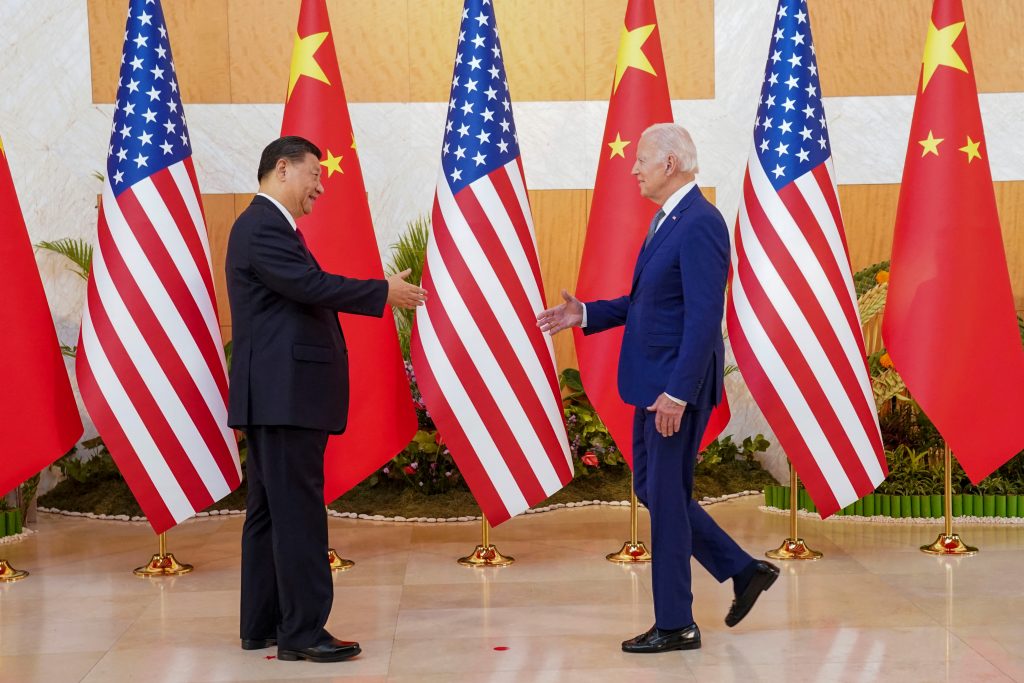A glimmer of hope for the stabilisation of China–US relations sparked in 2023. Chinese President Xi Jinping and US President Joe Biden met in Bali on 14 November 2022. They agreed that the two countries should re-establish contact and dialogue to improve the management of this important but increasingly troubled relationship.
Several developments contributed to the China–US agreement. The Republican control of the House of Representatives following the US mid-term elections made it impossible for Biden to pass legislation through the anti-China US Congress. Accidentally, it also provided him with greater flexibility to adjust his China policy as he no longer needed the votes of the congressmen.
The 20th National Party Congress of the Chinese Communist Party ushered in new leadership. As China was going through some serious economic difficulties, the new leadership’s top priority is to secure the renewal of economic growth. In doing so, China needed a friendly international environment, making the stabilisation of China–US relations a key priority.
Tensions between the two countries reached a critical point, necessitating urgent measures to avoid all-out confrontation, including the risk of war due to incidents in the Taiwan Strait and the South China Sea.
To realise the agreement, senior diplomats from both countries met near Beijing in December 2022 to iron out the details for US Secretary of State Antony Blinken’s planned visit to China in February 2023. But the Chinese balloon incident abruptly halted these efforts. Despite Beijing’s expression of regret, Washington decided to shoot down the balloon and postpone Blinken’s visit to China, aligning with the heated anti-China sentiments at home.
It took another four months to revive Blinken’s visit. His trip to Beijing in June proved quite successful. Blinken met Xi Jinping, talked in great lengths with Chinese counterparts, both sides agreed to maintain communication and implement measures to stabilise the relationship.
Following Blinken’s visit, senior officials from both countries began reciprocal visits. Visits to China by US officials included the US Secretary of the Treasury Janet Yellen, US Secretary of Commerce Gina Raimondo, US Special Presidential Envoy for Climate John Kerry. Chinese Minister of Foreign Affairs Wang Yi, Chinese Vice President Han Zheng and Chinese Vice Premier He Lifeng represented China in visits to the United States. The October 2023 visit by a US congressional delegation, led by US Senate Majority Leader Chuck Schumer, was significant because it symbolised a form of bipartisan endorsement of Biden’s efforts to stabilise relations with China.
The two sides agreed to set up several working groups to discuss economic and financial matters. Other talks encompassed issues such as maritime affairs, foreign policy, arms control, non-proliferation and climate change. Regarding climate change, an agreement was reached in November 2023 to expand cooperation, work together to ensure the success of the COP28 climate summit and revive a working group dedicated to cooperative efforts in this area.
The reengagement efforts culminated in the Xi–Biden summit in San Francisco on 15 November 2023. The Chinese Ministry of Foreign Affairs Spokesperson Mao Ning, deemed the summit as a ‘milestone in the history of China–US relations’, producing over 20 consensuses. The US White House readout was less euphoric, noting that ‘the two leaders held a candid and constructive discussion on a range of bilateral and global issues’.
Given the low expectations, the summit can be considered successful. The two leaders finally met in person despite domestic oppositions in both countries. They reaffirmed their determination to continue efforts to renew contact and dialogue. An agreement was reached to resume indispensable military dialogues to avoid accidental military conflicts. Xi Jinping and Biden also agreed to open dialogue on artificial intelligence, a new area in which rules and norms are needed. They also agreed to work together on specific issues such as fentanyl, climate change and to promote people-to-people exchanges between the two countries.
Using stock market language, the state of China–US relations can be viewed as a ‘weak rebound’. The reason is simple. The structural factors constraining the development of the relationship remain and are likely to get worse. The ideological divide is difficult to bridge, the difference in political systems is significant, the difference in economic governance is substantial and there is deep-seated strategic distrust. The popular view of each other is at historical lows.
The US presidential election will be in full steam in 2024. Candidates are likely to compete on who can be tougher on China. China’s response to this remains uncertain. If a Republican candidate is elected, the progress made in stabilising the relations is likely to be reversed. The China–US relationship hangs between a dire need for stabilisation and increasing pressure for confrontation. The direction in which the scales of history will tip remains to be seen.
Jia Qingguo is Professor at the School of International Studies, Peking University.
This article is part of an EAF special feature series on 2023 in review and the year ahead.


In 2023, US President Joe Biden and Chinese President Xi Jinping initiated dialogue to improve relations despite tensions between the United States and China. But structural barriers such as ideological differences, different political systems, economic governance and mutual distrust remain, leaving the future of China–US relations uncertain, especially ahead of the contentious 2024 US Presidential election.